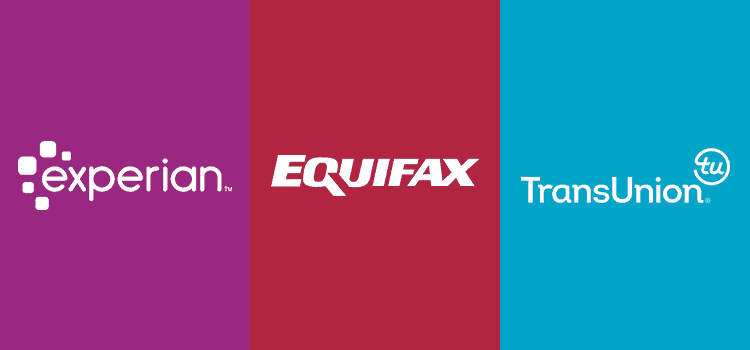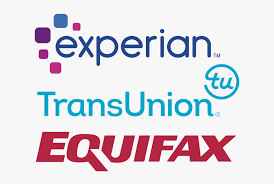
Understanding Credit Bureaus: Equifax, Experian, TransUnion Explained for Beginners
Your financial life, from applying for a loan to renting an apartment, is often influenced by a mysterious trio: Equifax, Experian, and TransUnion. These are the three major credit bureaus in the United States, and understanding their role is fundamental to managing your financial health.
For many, the world of credit reports and scores can feel like a complex, intimidating maze. But don’t worry – this article will demystify credit bureaus, explain what they do, why they matter to you, and how you can take control of your financial information.
What Exactly Are Credit Bureaus? (The Data Collectors)
Imagine a giant library that collects information about how people handle their debts. That’s essentially what a credit bureau is. Also known as credit reporting agencies (CRAs), these private companies collect and maintain vast amounts of data about your borrowing and repayment history.
Their primary purpose is to provide this information to lenders, creditors, and other authorized businesses. When you apply for a credit card, a mortgage, a car loan, or even some jobs, the lender wants to assess your reliability. They turn to these bureaus to get a snapshot of your financial behavior – specifically, your credit report.
Key takeaway: Credit bureaus don’t lend money, nor do they decide if you get approved for credit. They simply gather and organize the data.
Meet The Big Three: Equifax, Experian, and TransUnion
While there are smaller, specialized credit reporting agencies, the vast majority of consumer credit activity is tracked by these three giants:
- Equifax: One of the oldest credit bureaus, Equifax collects and maintains consumer credit information. They also offer various services to businesses for risk management and fraud detection.
- Experian: A global information services company, Experian provides data and analytical tools to clients worldwide. In the U.S., they are a major player in consumer credit reporting.
- TransUnion: TransUnion compiles and provides credit reports and scores to businesses and consumers. They also focus on solutions for fraud prevention and identity management.
Important Note: While they all collect similar types of information, their reports might not be identical. This is because not all lenders report to all three bureaus, or they might report at different times. This is why it’s crucial to check your report from each bureau.
What Information Do Credit Bureaus Collect About You?
The data credit bureaus gather is extensive and forms the basis of your credit report. Here’s a breakdown of the common categories:
-
Personal Identifying Information:
- Your full name (current and previous)
- Current and previous addresses
- Date of birth
- Social Security Number (SSN)
- Phone numbers
- Employment history (sometimes)
-
Credit Accounts (Trade Lines): This is the core of your credit report and includes details on various types of credit you’ve held:
- Credit Cards: Visa, MasterCard, American Express, store cards.
- Installment Loans: Car loans, mortgages, student loans, personal loans.
- Revolving Accounts: Lines of credit.
- Other Accounts: Sometimes includes utility bills, cell phone contracts, and rent payments (if reported by your landlord or utility provider).
For each account, the report typically shows:
- The name of the creditor (e.g., "Bank of America")
- Account number (often partially masked for security)
- Account type (e.g., "revolving," "mortgage")
- Date opened
- Credit limit or original loan amount
- Current balance
- Payment history (whether payments were on time, late, or missed)
- Date closed (if applicable)
-
Public Records: Information from public sources that can affect your creditworthiness:
- Bankruptcies
- Tax liens (though less common now)
- Civil judgments (less common now)
-
Inquiries: A record of who has accessed your credit report:
- Hard Inquiries: Occur when you apply for new credit (e.g., a loan, credit card). These can slightly lower your credit score for a short period and stay on your report for two years.
- Soft Inquiries: Occur when you check your own credit, a lender pre-approves you for an offer, or for employment background checks. These do not affect your credit score and are usually only visible to you.
What Credit Bureaus DO NOT Collect (Generally):
It’s equally important to know what information credit bureaus typically don’t collect or include in your credit report:
- Your race, religion, or national origin
- Your political affiliations
- Medical history or diagnoses
- Income or salary information (though lenders will ask for this separately)
- Banking account balances (checking/savings)
- Criminal record (unless related to public records like bankruptcy fraud)
How Do Credit Bureaus Get This Information?
Credit bureaus don’t actively spy on your spending habits. Instead, they rely on data furnishers – the businesses you interact with financially – to send them updates.
- Lenders & Creditors: Banks, credit card companies, mortgage lenders, auto finance companies, student loan providers – these are the primary sources of data. They regularly report your payment history, balances, and account status to one, two, or all three of the major credit bureaus.
- Collection Agencies: If an account goes to collections, that information will also be reported.
- Public Records: Courts and government agencies provide information on bankruptcies and other public financial judgments.
- Other Service Providers: In some cases, utility companies, landlords, and cell phone providers may choose to report payment information, though this is less common than with traditional lenders.
This reporting process happens continuously, which is why your credit report is a dynamic document that changes over time as you make payments, open new accounts, or close old ones.
Why Do Credit Bureaus Matter to YOU? (The Impact on Your Life)
The information held by credit bureaus forms the foundation of your credit report, which in turn influences your credit score. Your credit score is essentially a numerical grade of your creditworthiness. A good credit report and score can open many doors, while a poor one can create significant obstacles.
Here’s how credit bureaus directly impact your life:
- Getting Loans & Credit Cards: This is the most obvious impact. Lenders use your credit report and score to decide if they’ll approve you for a mortgage, car loan, personal loan, or credit card – and what interest rate they’ll offer. A higher score typically means lower interest rates, saving you thousands over the life of a loan.
- Renting an Apartment: Many landlords check credit reports to assess a prospective tenant’s reliability and financial stability.
- Insurance Premiums: In many states, auto and home insurance companies use credit-based insurance scores (derived from your credit report) to help determine your premiums.
- Utility Services: Utility companies (electric, gas, water) may check your credit to decide if they require a security deposit before starting service.
- Employment: Some employers, particularly for positions involving financial responsibility or high-level security, may conduct a credit check (with your permission). They typically see a modified report that doesn’t include your credit scores.
- Cell Phone Contracts: Phone carriers may check your credit before offering you a contract, especially for plans that involve financing a new phone.
In essence, your credit report is a critical financial resume that many businesses use to make decisions about you.
Understanding and Accessing Your Credit Report
Given their importance, regularly reviewing your credit reports is one of the smartest financial habits you can adopt.
Why You Should Check Your Credit Reports:
- Accuracy: Errors are surprisingly common. Incorrect balances, accounts that aren’t yours, or mistaken late payments can negatively impact your score.
- Identity Theft & Fraud: Your credit report is an early warning system for identity theft. If you see accounts you didn’t open or inquiries you don’t recognize, it could be a sign someone is using your identity.
- Financial Planning: Understanding your credit history helps you identify areas for improvement and track your progress towards financial goals.
How to Get Your FREE Credit Reports:
By federal law, you are entitled to a free copy of your credit report from each of the three major credit bureaus (Equifax, Experian, and TransUnion) once every 12 months.
The ONLY official website to get your truly free credit reports is:
- AnnualCreditReport.com
Beware of other sites that claim to offer "free credit reports" but then try to sign you up for paid services or require credit card information. AnnualCreditReport.com is the genuine article.
Tips for Accessing Your Reports:
- You can request all three reports at once, or space them out throughout the year (e.g., Experian in January, Equifax in May, TransUnion in September) to monitor your credit more frequently.
- You’ll need to provide personal information for verification.
- You can view them online, print them, or have them mailed to you.
What to Look For When Reviewing Your Reports:
Go through each section meticulously:
- Personal Information: Is your name, address, and SSN correct?
- Accounts (Trade Lines):
- Are all accounts listed yours?
- Are the account numbers, credit limits, and balances accurate?
- Is the payment history correct (no missed payments you actually made on time)?
- Are closed accounts properly reported as closed?
- Public Records: Are any bankruptcies or other public records accurate?
- Inquiries: Do you recognize all the hard inquiries? (Remember, soft inquiries don’t count against you).
Disputing Errors on Your Credit Report
Finding an error on your credit report can be frustrating, but you have consumer rights to dispute inaccurate information. The Fair Credit Reporting Act (FCRA) protects you.
Steps to Dispute an Error:
- Gather Evidence: Collect any documents that support your claim (e.g., bank statements showing on-time payments, loan agreements, identity theft reports).
- Contact the Credit Bureau:
- Online: Most bureaus have an online dispute process, which is often the fastest way.
- By Mail: Send a letter via certified mail with a return receipt requested. Clearly identify the error, provide supporting documentation, and state what you want corrected.
- Important: Dispute with the specific bureau(s) where the error appears.
- Contact the Data Furnisher (Optional, but Recommended): Also contact the company that reported the information (e.g., your bank, credit card company). They also have a responsibility to investigate and correct inaccuracies.
- Wait for the Investigation: By law, the credit bureau typically has 30 days (sometimes 45 days, depending on circumstances) to investigate your dispute. They will contact the data furnisher for verification.
- Review the Outcome: The bureau will notify you of the results. If the information is found to be inaccurate, it must be corrected or removed. If it’s verified as accurate, it will remain.
If the dispute isn’t resolved to your satisfaction, you can contact the Consumer Financial Protection Bureau (CFPB) for further assistance.
Credit Scores: The "Grade" Based on Their Data
While credit bureaus collect the raw data, they don’t directly create your credit scores. Instead, independent companies like FICO and VantageScore use the information from your credit reports to generate your credit scores.
- FICO Score: The most widely used credit scoring model.
- VantageScore: A newer, increasingly popular scoring model developed collaboratively by the three major credit bureaus.
Both models use complex algorithms, but they generally weigh similar factors from your credit report:
- Payment History (35-40%): Are your payments on time? This is the most crucial factor.
- Amounts Owed / Credit Utilization (30%): How much credit do you use compared to your available credit limit? Keeping this low (ideally below 30%) is beneficial.
- Length of Credit History (15%): How long have your accounts been open? Older accounts generally help.
- New Credit (10%): How many new accounts have you opened recently? Too many can signal higher risk.
- Credit Mix (10%): Do you have a healthy mix of different credit types (e.g., revolving credit cards and installment loans)?
Why are scores different? Because each bureau might have slightly different information on your report, and FICO and VantageScore models have their own proprietary algorithms, your score will likely vary slightly across different sources and models.
Protecting Your Credit: Beyond Checking Reports
Understanding credit bureaus is the first step; protecting your credit is the next.
- Credit Freeze: The most robust protection against identity theft. A credit freeze restricts access to your credit report, meaning lenders can’t pull it. This prevents new accounts from being opened in your name. You can temporarily "thaw" or lift the freeze when you need to apply for credit. You must place a freeze with each of the three bureaus individually. It’s free to place and lift.
- Fraud Alert: If you suspect identity theft, a fraud alert warns lenders to take extra steps to verify your identity before extending credit. An initial fraud alert lasts one year and only needs to be placed with one bureau (they’ll notify the others).
- Credit Monitoring: Many services (some free, some paid) offer alerts if there’s suspicious activity on your credit report. While helpful, it’s not a substitute for checking your own reports and placing a freeze if concerned about identity theft.
- Shred Sensitive Documents: Don’t just throw away old bills or statements.
- Use Strong, Unique Passwords: Especially for online financial accounts.
- Be Wary of Phishing Scams: Don’t click suspicious links or give out personal info over the phone unless you initiated the call.
Conclusion: Empower Yourself Through Knowledge
Credit bureaus – Equifax, Experian, and TransUnion – are the unsung pillars of our financial system. While their existence might seem abstract, their role in collecting and maintaining your financial history is profoundly impactful.
By understanding what they do, regularly checking your credit reports for accuracy, knowing how to dispute errors, and taking proactive steps to protect your information, you empower yourself to navigate the financial world with confidence. Your credit report is your financial story – make sure it’s accurate and reflects your responsible habits.
Frequently Asked Questions (FAQs) About Credit Bureaus
Q1: Do the three credit bureaus share information with each other?
A1: Generally, no. They are separate, competing companies. While they all receive data from many of the same lenders, they do not directly share consumer credit information with each other. This is why your report can differ slightly between them.
Q2: Is one credit bureau better or more important than the others?
A2: No, not inherently. All three are equally important because different lenders might pull a report from different bureaus. For example, a mortgage lender might pull from all three, while a credit card company might only pull from one. It’s crucial to monitor all three.
Q3: How long does information stay on my credit report?
A3: Most negative information (like late payments or collections) generally stays on your report for 7 years from the date of the delinquency. Bankruptcies can remain for 7 to 10 years, depending on the type. Positive information, like accounts paid as agreed, can stay on indefinitely and continue to benefit your score as long as the account is active.
Q4: Can I remove accurate but negative information from my credit report?
A4: No. Credit bureaus are legally obligated to report accurate information, even if it’s negative, for the time periods allowed by law. The best way to improve your credit after negative marks is to establish a pattern of positive credit behavior.
Q5: What’s the difference between a credit report and a credit score?
A5: Your credit report is a detailed list of your credit history (the raw data). Your credit score is a three-digit number (e.g., 720) that is calculated based on the information in your credit report. Think of the report as the textbook and the score as your grade.




Post Comment